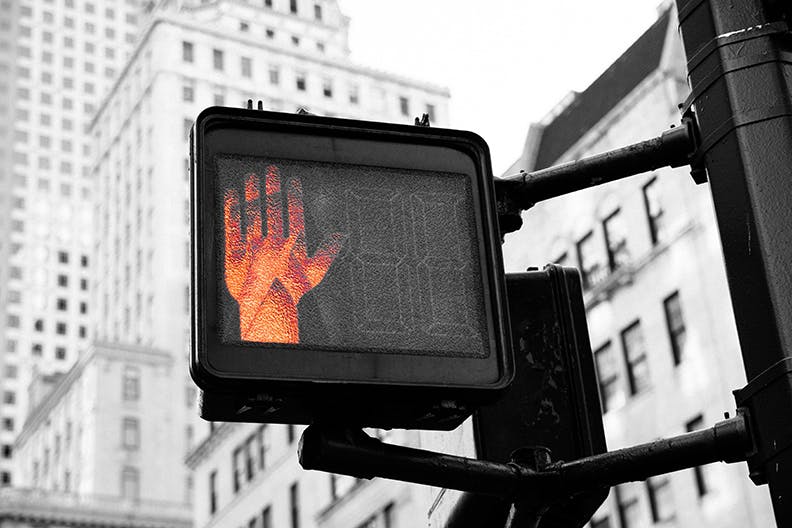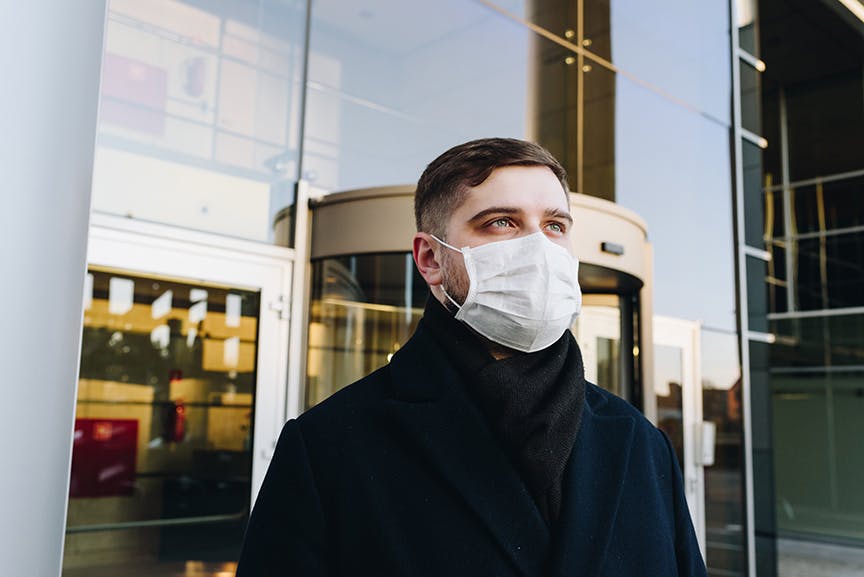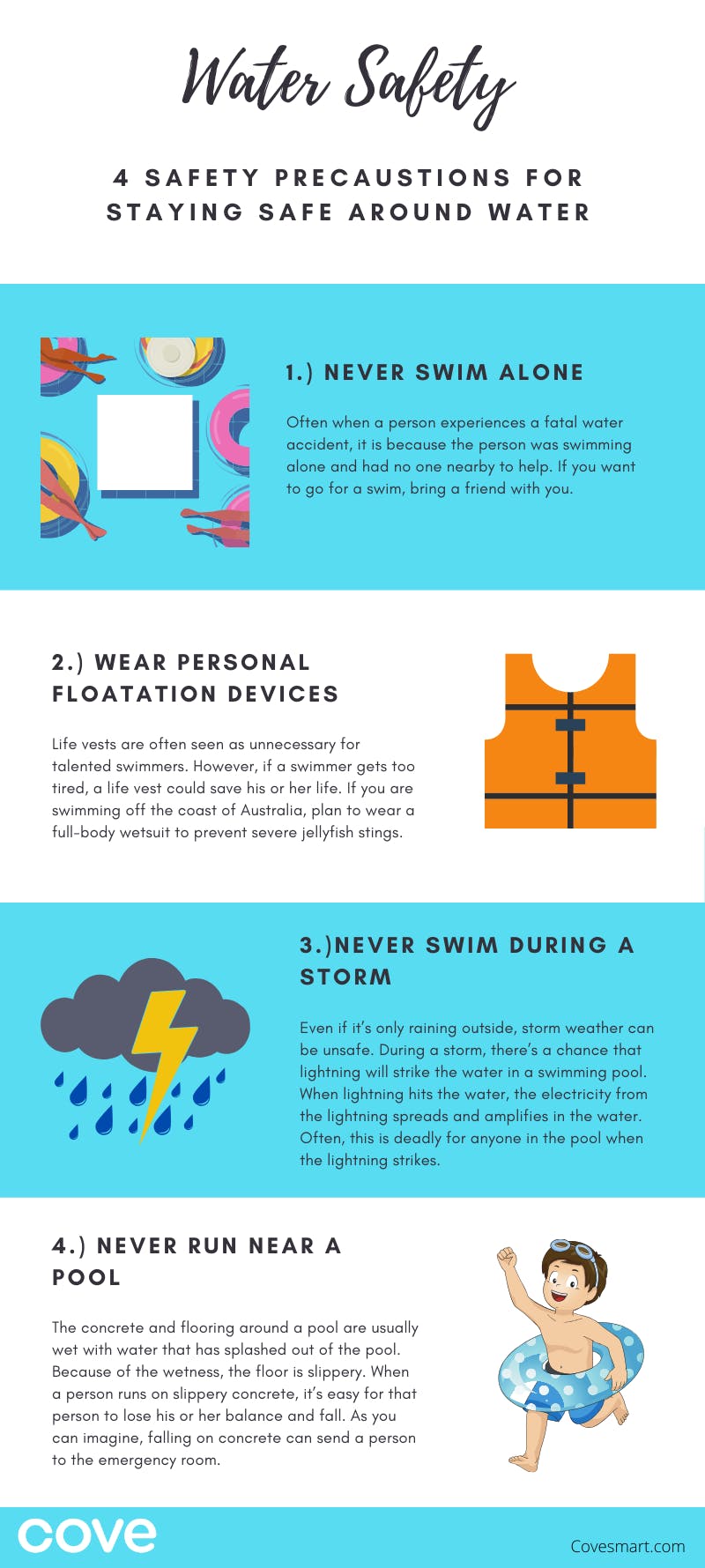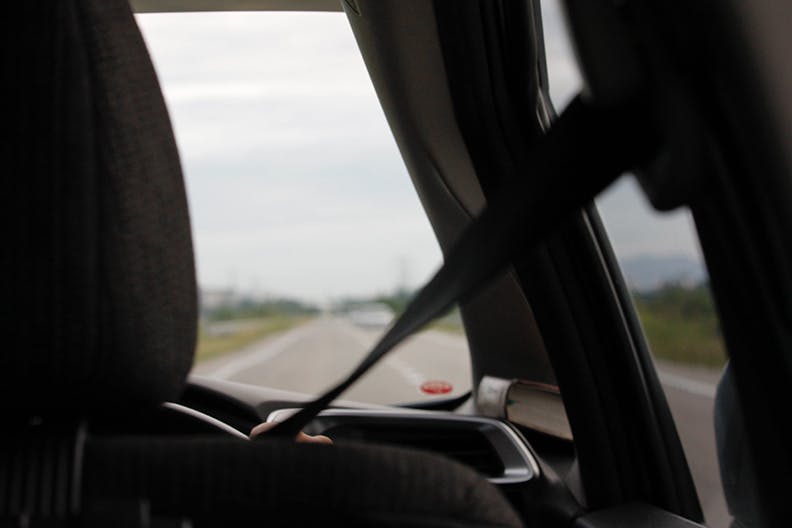
Accidental injuries, according to the Center for Disease Control and Prevention, are the third leading cause of fatalities in the United States. Every year, over 39.6 million people visit a physician for treatment because of an accidental injury. Another 29.2 million are sent to the emergency room for immediate treatment due to an accidental injury.
To say the least, accidents can be deadly. From slipping on a set of stairs to receiving burns from a malfunctioning water heater, accidental injuries are unpredictable and deadly. Often, accidents are completely avoidable. Learning to live a safer life can help you avoid unnecessary pain and medical bills. Here are some vital safety precautions and tips that will help you live a safer life and avoid unnecessary accidents.

1. Safety From Infectious Diseases
Whether the cause is COVID-19 or a simple cold, no one likes to be sick. Diseases like these can be very easily transmitted from person to person but to reduce your risk of contracting these and other contagious illnesses take these safety precautions:
- Wash Your Hands. Make sure that you wash your hands often and when you do that you wash them for at least 20 seconds and preferrably with soap. The CDC‘s video below outlines proper handwashing.
- Avoid Touching Your Face. If we’re not consciously thinking about it, we might not realize how often we actually are touching our faces. In order to prevent the contracting a disease avoid touching your face, especially your eyes, nose, and mouth. These are easy entrances for bacteria.
- Avoid Leaving Your Home. We all have things that we have to leave the house for whether that’s work or shopping but limiting the amount of time we’re spending in public is an effective way to lower your risk of contract COVID-19 or any other virus. While out and about also make sure to keep several feet away from other individuals even if they look healthy. Viruses like COVID-19 have an incubation period where a person may be carrying the virus but not showing symptoms. Being several feet away from people out in public lowers the odds that any infectious particles from their sneeze or cough will come into contact with you.
Taking all of these safety precautions is not a guarantee that you won’t contract the corona virus but it will decrease your chances of contracting the virus. Remember also that you may also be carrying the virus without your knowledge so make sure to cover your nose and mouth when you sneeze or cough.
2. Safety at Home with Smart Home Security
When most people think of a home security system, they imagine cameras, motion sensors, and smart doorbells. However, a home security system is more than that. Home security also includes flood sensors, smart smoke detectors, medical alert buttons, and smart carbon monoxide detectors. These safety devices prevent accidents inside the home.
Because the devices are “smart,” they can connect to your cell phone. If any of the sensors are activated, regardless of whether you’re inside the house or on vacation, your phone will receive an alert from the smart device. If a loved one has fallen, their pressing of the medical alert button will alert you to get help. If a flood sensor is triggered, you know that your home is in danger of flooding. If the smoke detector is triggered, you will know in advance that a fire has started. No matter what happens, a smart home security system will protect your home from the dangers within. Home safety is vital in encouraging a safe and healthy life. By pairing a home security system with everyday safety tips, you will be able to live a more secure life.
Some safety tips for when you’re at home are:
- Keep the Garage Door Closed. This safety tip ensures that no one is able to enter the house without your permission. Leaving the garage door open invites burglars and home intruders to come inside.
- Install Carpeting On Your Stairs. Even if it isn’t fashionable to have carpeted stairs, it’s the safest option. Stairs are the number one reason for injuries due to falling in the United States. Wood stairs are easier to slip and tumble down.
- Never Leave Children Home Alone. Most parents trust their kids by the time that they’re 12. However, children 14 and younger shouldn’t be left on their own. Because their minds are underdeveloped, they can get into trouble that cause severe accidents while their parents are away from the house. To keep your children safe, hire a babysitter.
- Keep Your Doors Locked. Even while you’re home, make sure to keep your doors locked. Studies have shown that most intruders walk into homes because the front door was left unlocked. In these cases, the victim unknowingly welcomed the attacker into the home.

3. Safety in the Water
Every year, there are over 3,000 water-related accidents that result in drowning. Aside from those, there are another 400 deaths due to boating accidents. Water can be extremely dangerous, and parents should teach their young children about water safety while the children are young. Water hazards include the risk of drowning, electrocution, and hypothermia. These three hazards are easy to prevent as long as a person is aware of water safety rules.
Some water safety tips include:
- Never Swim Alone. Often when a person experiences a fatal water accident, it is because the person was swimming alone and had no one nearby to help. If you want to go for a swim, bring a friend with you.
- Wear Personal Floatation Devices (PFD). When swimming, learn about the area where you will be swimming and always wear the appropriate equipment. Life vests are often seen as unnecessary for talented swimmers. However, if a swimmer gets too tired, a life vest could save his or her life. If you are swimming off the coast of Australia, plan to wear a full-body wetsuit to prevent severe jellyfish stings. The waters of Australia are home to the most lethal creature on earth, the box jellyfish. So, plan accordingly before you enter the water and wear protective gear.
- Never Swim During a Storm. Even if it’s only raining outside, storm weather can be unsafe. During a storm, there’s a chance that lightning will strike the water in a swimming pool. When lightning hits the water, the electricity from the lightning spreads and amplifies in the water. Often, this is deadly for anyone in the pool when the lightning strikes. Instead, stay safe and avoid swimming during storms.
- Never Run Near a Pool. The concrete and flooring around a pool are usually wet with water that has splashed out of the pool. Because of the wetness, the floor is slippery. When a person runs on slippery concrete, it’s easy for that person to lose his or her balance and fall. As you can imagine, falling on concrete can send a person to the emergency room.

4. Safety at Work
The U.S. Bureau of Labor Statistics reported in 2018 that there were 2.8 million nonfatal workplace injuries. These injuries include sprained wrists, concussions, and emergency room visits. Employees spend around 2,080 hours working every year if the employee works a full-time job. This means that employees and workers spend nearly one-fourth of their lives working. If the workplace is unsafe, the chances of experiencing bodily harm are high. Wearing personal protective equipment (PPE) such as protective clothing, a hard hat, safety harness, gloves, and safety goggles can help keep employees safe while on the job. However, staying safe is more than protecting yourself in the workplace.
Employees should learn about safety procedures in their workplace. Many employees must handle chemicals and hazardous substances while in the workplace. If employees need to work with dangerous chemicals, the employees should be supplied with safety glasses, a helmet, and other protective equipment. The workplace should instruct employees about occupational safety on a regular basis in order to keep employees up-to-date on the latest personal protective tips. Employees should feel safe and protected while in the workplace. If a workplace is ever cluttered by tripping hazards and other dangerous objects, the situation should be reported in order to keep employees and workers safe. Employees and workers should also be instructed to know where to find the first aid kit and other protective equipment in the case of an emergency. Workplace accidents can be serious, and employees should be protected.
Here are some safety tips for while you’re at work:
- Always Have Protective Items With You. If you work in a potentially dangerous area such as a warehouse or construction area, always have protective gear with you. You should wear your helmet wherever you go, even if you’re stepping away for lunch. These items are meant to protect you and ensure your health and safety.
- Stay in Touch With Your Manager. During work hours, if you need to leave the location, make sure that your manager knows where you are. You want to make sure that someone is aware of your location at all times.
- Be Careful With Heavy Machinery. Workplace injuries often happen in the manufacturing industry, where employees have to work with heavy machinery. Safety risks are higher when working in a dangerous setting, and it’s more important than ever to stay alert in your surroundings. Exposure to chemicals or injuries due to contact with machinery can cause a life-threatening injury. To avoid getting injured on the job, stay alert.

5. Safety on the Road
Every day, 90 people die in a car crash in the United States. There are 6 million total car accidents every year, in which 3 million result in injury or death. Driving is an important part of American life. Employees drive to the workplace, high school students drive to school, and parents drive to take their children to sports. There are 272 million vehicles in the United States, and a majority of those vehicles are driving on the road every day. Learning to stay safe while driving on the road is important, especially since you can’t control how others drive.
Safety on the road is more than about learning to drive. It’s also about obeying traffic laws and learning safety skills to protect you as a pedestrian. As a pedestrian, you’re vulnerable. Learning how to avoid coming into contact with a moving car can save your life.
Here are safety tips for while you’re on the road and walking as a pedestrian:
- Obey All Traffic Laws. If you’re in a hurry, you might be tempted to roll through a stop sign or run a red light. However, traffic laws are there to protect you and the car next to you. Traffic laws ensure that pedestrians are safe and that the laws are obeyed. If you’re pulled over by law enforcement for speeding, understand that the police are doing their best to keep every car on the road safe.
- Drive Slowly Through Parking Lots. Parking lots can be dangerous for parked cars and pedestrians. When a car drives too fast through a parking lot, it endangers the person walking across the crosswalk and the other cars in the area. Parking lots are a common place for car collisions because drivers are paying less attention to their surroundings. Stay alert, no matter where you are.
- Trust the Police. The police are there to protect you. Police help to enforce public safety, and it is in their own best interest to ensure that people are protected. Police spend their time preventing violent crimes and responding to suspicious activity. On the road, the police department works to keep every car safe. If you suspect a drunk driver or other crime on the road, call the police and trust them to protect you.
- Drive Cars With Crash Detection. New cars are equipped with crash detection and other safety alarms to make driving safer. To drive safely, drive a car that has these safety features.

6. Personal Safety
The 2018 FBI Crime Statistics reported 1.2 million violent crimes in the United States. This includes rape, murder, assault, and abuse. Sadly, violent crimes happen every day and are hard to prevent. To protect yourself from becoming a victim, you must always stay alert while in public. Often, we assume the best of people and assume that bad things only happen to other people—never to us. However, even on a safe college campus, there were 3,400 violent crimes and another 4,000 property crimes reported. People alone at night should avoid meeting up with online strangers and should always be with another adult. If you need to walk alone at night, carry protective gear like pepper spray or personal safety alarms in a purse.
Some safety tips for personal safety are:
- Learn Self-Defense Techniques. One of the best things that you can do is to learn self-defense techniques. Sometimes, you won’t be able to avoid walking by yourself. If you are alone and someone tries to attack you, it’s important that you know how to respond. Learning to break out of a grip or how to incapacitate someone long enough to get away can save your life. Additionally, if you’re able to get away, even for a moment, the attacker isn’t likely to go after you because they see you as a stronger threat than they had hoped. If this does happen to you, run to a safe place like a police station.
- Always Have Your Phone. A cell phone can save your life. Never leave home without a phone. If you’re ever in a situation where you feel unsafe, you can use your phone to call for help. If you’re on a school campus, you can use your phone to call security. Your phone can act as a lifeline. There are also safety apps that can be downloaded onto the phone like these ten safety apps for women.
- Do Not Travel Alone. No matter where you’re going, do not travel alone. Attackers will usually target victims who are walking alone at night. If you have to leave a location on your own, make eye contact with the people around you. Making eye contact with people around you discourages strangers from targeting you because you are more aware of your surroundings.
- Tell Your Emergency Contacts Where You Are. When you leave to go somewhere, always make sure that someone knows where you are. Tell your emergency contacts where you are going and when you will be back. Give you emergency contact the contact numbers for the people you will be with. If you aren’t home in time, your emergency contacts will know where you are.
- Consider Purchasing Personal Safety Equipment. Making sure to carry some pepper spray or a personal alarm can also be an asset for your personal safety.
- Don’t Resist. If you are ever in a situation where someone is trying to steal your purse, wallet, or credit cards, do not resist. Your purse is not worth your life, especially if the person is threatening to hurt you if you do not have over the money. Instead, hand over your purse and call the police after the person leaves.
